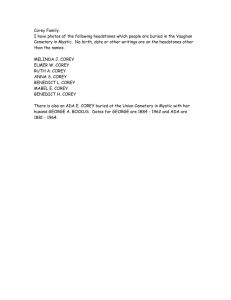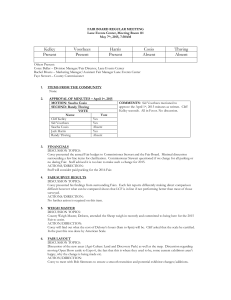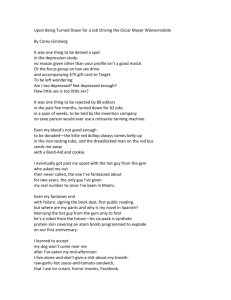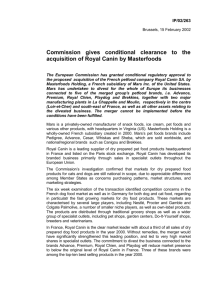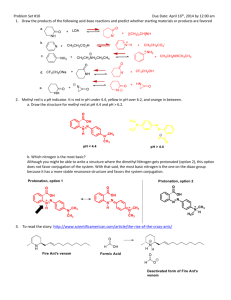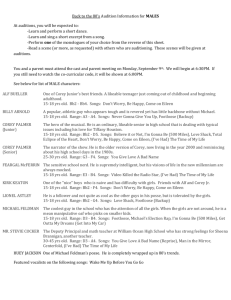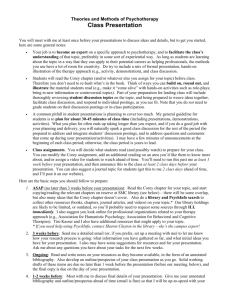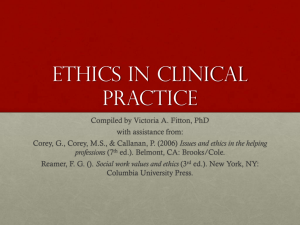AMERICA, AMERICA
advertisement
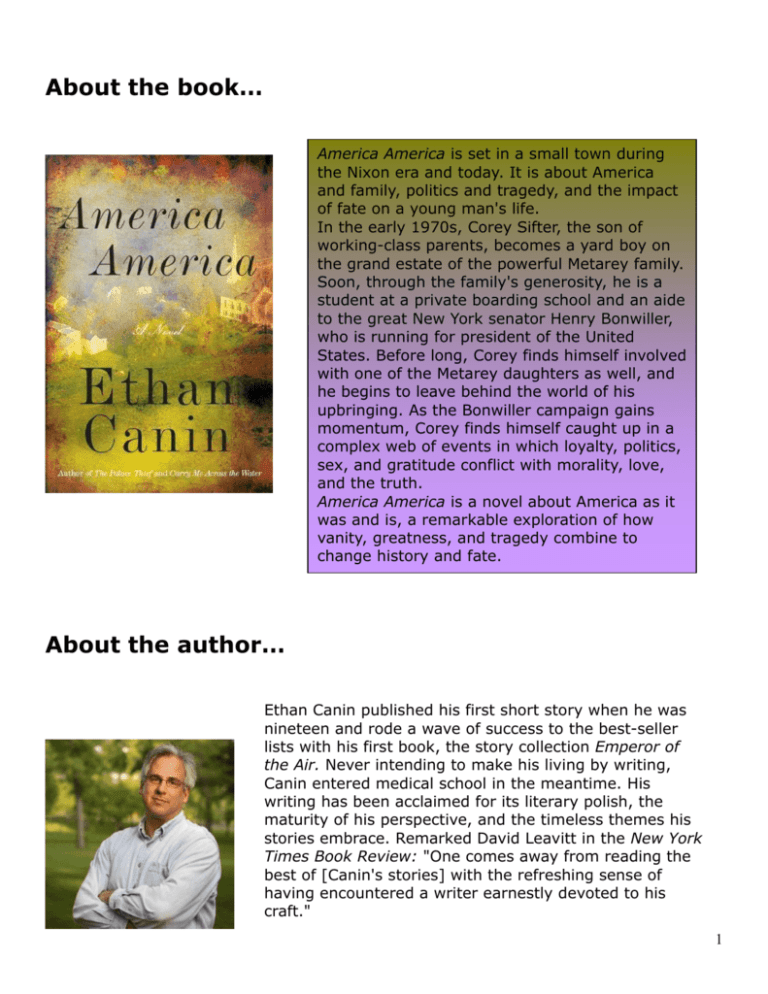
About the book… America America is set in a small town during the Nixon era and today. It is about America and family, politics and tragedy, and the impact of fate on a young man's life. In the early 1970s, Corey Sifter, the son of working-class parents, becomes a yard boy on the grand estate of the powerful Metarey family. Soon, through the family's generosity, he is a student at a private boarding school and an aide to the great New York senator Henry Bonwiller, who is running for president of the United States. Before long, Corey finds himself involved with one of the Metarey daughters as well, and he begins to leave behind the world of his upbringing. As the Bonwiller campaign gains momentum, Corey finds himself caught up in a complex web of events in which loyalty, politics, sex, and gratitude conflict with morality, love, and the truth. America America is a novel about America as it was and is, a remarkable exploration of how vanity, greatness, and tragedy combine to change history and fate. About the author… Ethan Canin published his first short story when he was nineteen and rode a wave of success to the best-seller lists with his first book, the story collection Emperor of the Air. Never intending to make his living by writing, Canin entered medical school in the meantime. His writing has been acclaimed for its literary polish, the maturity of his perspective, and the timeless themes his stories embrace. Remarked David Leavitt in the New York Times Book Review: "One comes away from reading the best of [Canin's stories] with the refreshing sense of having encountered a writer earnestly devoted to his craft." 1 [...] America, America takes place during the last years of the Nixon era and focuses on a fictional libertarian senator, Henry Bonwiller, groomed to take on Nixon in the 1972 election as the Democratic Party's nominee. He stands for a return of America to the working class and aims to pull the nation out of the Vietnam War. Bonwiller himself, however, is a mere puppet, his strings controlled by the head of a wealthy and powerful family in New York State, Liam Metarey, who is determined to see his own political agenda played out on a national scale. Having inherited his wealth and feeling somewhat ashamed of the way that his father built the family fortunes, Metarey nevertheless makes good use of his power and his broad financial holdings in order to further his goals. The story is narrated by Corey Sifter, the son of a local plumber and contractor who has been taken under Metarey's wing and serves as caretaker for the family estate. He ultimately gets roped into the presidential campaign for Bonwiller, and through his eyes the reader is able to see all of the senator's flaws and weaknesses. The final straw comes when the body of young local beauty queen with whom Bonwiller had been having an affair is discovered, with evidence indicating that the pair had been in a car accident and a cover-up had ensued. Reviewing for Booklist, Ian Chipman opined that in this work, Canin "struggles with pacing issues, an awkward chronology, and underdeveloped characters." However, a contributor for Kirkus Reviews, while acknowledging the book's flaws, concluded that "it's the journey, not the arrival, that matters, and the journey is an enthralling one." Jerome Charyn, writing for Publishers Weekly, dubbed the book "a powerful lament that haunts us like a 2 latter-day ghost of The Great Gatsby." He went on to praise the writing, stating that "the language is often supple, can leap from impressionistic poetry to a coroner's report, and can whiplash through time." ~ Literature Resource Center Book reviews Publishers’ Weekly Canin's marvelous tale of Corey Sifter, a young workingclass man who goes to work for a powerful family and ends up entangled in a political debacle, is wonderfully realized by Robertson Dean, whose deep bass tone is at once powerful and intimate. Told from Sifter's perspective as an older man, Dean captures every possible emotion that saturates Sifter's tone, be it regret or affection, and it's hard not to be riveted. His shifts in tone and dialect for many characters are subtle, his pacing is steady. Dean is quite possibly the quintessential narrator. Library Journal Canin's new work about class, politics, money, and media in the Nixon era through the present day will resonate powerfully with readers in this presidential election year. Corey Sifter, a working-class boy from a small New York town, is hired by the Metareys, the wealthiest family in Saline, to be a man-of-all-trades. His work ethic endears him to the Metareys, who treat him as one of the family, even paying for his prep school tuition. As both an insider and an outsider, Corey is in a unique position to observe the political maneuverings of Liam Metarey and his 3 campaign to elect Sen. Henry Bonwiller to the presidency. However, Bonwiller's personal failings ruin not only his political career but also the finances and family life of the Metareys. This saga of politics and family is a superb achievement; Canin (The Palace Thief) interleaves past and present to create a classical tragedy from the very first page. This engrossing novel would be a good book club selection and is highly recommended. Kirkus Reviews A dynasty shattered, a presidential campaign in ruins; a newspaper publisher revisits his youth to better understand an old scandal.This novel of character, Canin's first since Carry Me Across The Water (2001), is powerful and haunting, a major work. Narrator Corey Sifter is the middle-aged publisher of a regional daily in upstate New York. In 2006 he attends the funeral of the ancient Henry Bonwiller, former U.S. senator, the last of the liberal lions. After this low-key start we move back to 1971. Corey is 16, son of a plumber, a true craftsman. They live in Saline, a company town dominated by the Metareys, one of America's great capitalist families. The original Metarey, a Scottish immigrant and ruthless coal baron, has been succeeded by his son Liam, a far kinder man, well-liked. Liam sees a disciplined worker in Corey, self-discipline being the bedrock of character, and hires him as a parttime groundskeeper, then pays his way at a prestigious boarding school as Corey begins a tentative relationship with one of Liam's daughters. Liam is also masterminding the fiercely anti-war Bonwiller's run for the White House; soon Bonwiller is the Democratic frontrunner, but danger lurks. A young woman has been found in the snow, intoxicated, frozen to death. Bonwiller's name is linked to 4 hers, though nobody knows the details. Corey, in a minor way, participates in a cover-up. Only years later, after the birth of his first daughter, does he realize he'd been involved with "something unforgivably wrong." Canin employs with great skill Corey's double vision: the bedazzled loyalty of the teenager, the chastened worldview of the parent. Bonwiller's campaign implodes; the consequences for the Metareys are brutal. The novel is not flawless (Liam, the central character, proves elusive) but the detail work is quite wonderful: The rhythms of a great estate, and the dynamics of a landowning family, are captured with Tolstoyan exactitude.It's the journey, not the arrival, that matters, and the journey is an enthralling one. Literary Criticism Title: An Upstate Saga From the first pages of Ethan Canin's new novel, "America America" (Random House; $27), we feel in safe hands; the prospects are panoramic, and the prose, in the author's preferred first-person mode ("It's easier to write when you have a voice," he has said), is ruminative, ominous, and all set to confide a story. The narrator, Corey Sifter, is a fiftyyear-old journalist and the publisher of the SpeakerSentinel, a surviving independent newspaper in a town called Saline, an hour south of Buffalo and twenty miles east of Lake Erie. Corey has just attended, on a Saturday in late September, 2006, as "the smell of rotting apples was drifting up from the meadow," the funeral of Senator Henry Bonwiller, a local product who in 1972 made a 5 strong but thwarted run at the Democratic nomination for the Presidency of the United States. Bonwiller was eightynine, and had been out of politics for twenty-eight years. The funeral is well attended, though hints of two old scandals, alluded to as "Anodyne Energy" and "Silverton Orchards," shadow the graveside tributes to "the greatest liberal member of the United States Congress since Sam Rayburn." One elderly couple linger as the sod is being laid on Bonwiller's grave, and the man, with a carved cane and "that certain kind of roughly determined American face that you see less and less often around here," kneels and weeps. Corey recognizes him: "There was no one else alive now who knew." Thereby hangs the tale. And a complicated, many-layered epic of class, politics, sex, death, and social history it is, shuttling between the twenty-first-century present and the crowded events of 1971-72, with thorough retrospectives of the narrator's education and romantic life and the region's development as the fiefdom of a single family, the Metareys. Eoghan Metarey and his father were penniless Scots immigrants who in 1890 opened a hardware store and by 1900 held a firm grip on the area's wealth of hardwood forests and granite and limestone quarries. Eoghan and his younger son, Liam, successively administered the family fortune out of a "twenty-four-room brick and stone Edwardian manor" called Aberdeen West, which occupied "the apex of a hundred-thousand-acre triangle of land." Not only that, but the streets and houses of Saline ("which if you're an old-timer rhymes with malign, and if you're a newcomer, with machine") were "almost entirely built and owned" by the Metareys. At sixteen, Corey, the son of a self-educated 6 and well-regarded plumber, is summoned by Liam to come and work at Aberdeen West. (An unassuming tycoon, Liam comes knocking at the Sifters' back porch; his wife shops locally and his two daughters attend the local high school, "like all the rest of us.") Corey's story becomes part "David Copperfield" and part "An American Tragedy," with less suspense than either. We know from the outset that Corey has survived and prospered, and how much tragedy can attach to a senator who lives to be eighty-nine? Like Dickens, Canin has an unabashed fantastic streak. "Emperor of the Air," his first and best-known book, a collection of delicately soulful short stories, contains much weird behavior: a mild-mannered retired high-school teacher creeps into the night to poison his neighbor's trees with a jar of voracious red insects; another retiree stares at fish in the local aquarium all day and reads poetry while his wife hallucinates that a man is at her window; two adult sisters cope with their mother's incorrigible shoplifting; a boy stows away in the trunk of his golf-mad father's car and shouts out during the man's back-seat lovemaking. As in Sherwood Anderson's "Winesburg, Ohio," unfulfilled longings twist conformity out of shape. In "America America," Christian Metarey, one of the teen-age sisters, appears on the roof outside Corey's window and, climbing by moonlight, leads him eighty feet up into a giant pine tree, and, toward the end of the novel, Corey's father, nearing ninety, bends down and with a key scratches two sentences by Karl Marx into the wet concrete of a huge mall under construction. Such actions seem more emblematic than plausible. The characters, especially young and innocent Corey, struggle through a 7 fog of imperfect and fitful revelation; after thirty years of hindsight, the narrator is still groping to understand the novel's central events. How unambiguously, in contrast, Dreiser moves in inexorable, laboriously detailed linear fashion through the interlocking steps of his own upstate tragedy, shining a glaring light of sympathy upon the motives, intentions, and hopes not only of his principals but of the secondary characters who enforce society's unforgiving will--the doctor who denies Roberta an abortion, the district attorney who leads the hunt for Clyde and then his legal prosecution, the clergyman whom Clyde's mother sends to her condemned son in a vain quest for a mitigating circumstance that will save his life. A ponderous weight of authorial omniscience and compassion conveys the reality-single, one-shot, claustrophobically limited--of life itself. So, too, with the other naturalists, from Jack London to Edith Wharton, of a century ago. Canin, contrariwise, pieces together, in mostly short takes, an airy collage of imperfect memory and fleeting impression, as Corey's recollection of a bygone misfortune, half-comprehendingly witnessed in his adolescence, keeps reverting to pleased contemplation of his bourgeois present. Of the book's many strands, it is his boyhood in worker housing, under the protection of his two admirable parents and the patronage of the Metareys, that comes across most warmly, and the political strand, generating national headlines, that seems thinnest and least persuasive. Canin carefully wedges his fictional Senator Bonwiller into an election year, 1972, when, in fact, a Democratic field 8 including a fading Hubert Humphrey, an allegedly weepy Edmund Muskie, and a glowering George Wallace yielded the nomination to George McGovern, who lost to an incumbent Richard Nixon in one of the worst defeats in the history of Presidential contests. Nixon, who figures in this novel as a sinister background of fathomless conspiracy, was a touching character in Canin's short story "Vins Fins," which appeared in this magazine and presented political drama as it usually is, surreally fighting for our attention in a stew of personal and domestic happenstance. Born in 1960, Canin has done his homework. To verify Bonwiller's substance as a near-President, he lists the notables in attendance at a campaign reception at Aberdeen West: George Meany was there, and Carl Stokes, and Averell Harriman, and Senator Kennedy and Senator Mansfield and even Senator Humphrey. So were Arthur Schlesinger and Betty Friedan, and the famous young journalist David Halberstam, who'd just written a book called The Best and the Brightest. . . . G. V. Trawbridge [fictional] was in the crowd, too, and I assume now that both men must have agreed to take everything on deep background. I saw Daniel Patrick Moynihan and Shirley Chisholm, also, and even though now I can remember all these names and faces so clearly, the truth is that on the afternoon itself all but Trawbridge and Humphrey and Kennedy had to be pointed out to me. . . . But I can also say that without any prompting I sensed instantly that there was a new sort of stature in the room. Though it gives an old-timer like me pleasure to picture George Meany and Betty Friedan in affable discourse, to 9 anyone under forty these names can't spark much electricity and, in any case, paradoxically weaken Aberdeen West's claims on the imagination. Corey, with a brand-new driver's license in his pocket, drives Bonwiller around, but the Senator, away from a microphone, is taciturn and, until his downfall, remains pretty much a cipher. Though Corey's father remembers him as "the best friend the working men of this country have ever had," it is hard to believe that Liam Metarey, committing his heart and resources to the campaign, does not see the feet of clay so easily visible to, among others, his daughter Clara. In Corey's perspective, his patron and mentor, for all his generosity, also remains a bit remote and blank, coming to life mainly in this endearing glimpse: If anything broke, anywhere on the estate, he tried to fix it himself; and if he couldn't fix it, he dismantled it, salvaging it for parts, which he filed in the work barn in a ceiling-high collection of labeled drawers--themselves salvaged, it seemed, from some country auction. It was as though he were two men: the Liam Metarey who owned a third of Carrol Township and spoke with the governor just about every week, and another man entirely--a determined, hardscrabble Scotsman trying to scrape out a living on rocky land. His toolshed looked like the barn of an ingenious and frugal farmer. This paternalistic tinkerer presides over a considerably dishevelled household--a wife who drinks and flies a biplane, a son who quits school and enters the Vietnamera military, and two daughters who compete for Corey's 10 attention in contrasting, though equally unbalanced, styles. But their collective eccentricities feel halfhearted and joyless compared with those in "Emperor of the Air," especially those of the family in "American Beauty," whose jaunty dysfunction carries on guilt-free, with no burden of dynastic responsibility or need to further a novel's plot. In Carrol Township, their bohemian ilk, the Millburys, dwell in the "failed farmland" ten miles north of Saline, in a trailer on the edge of a bog; the man of the house has dropped out of a job as a chemist at DuPont, the mother paints, all six children are homeschooled, and, to make ends meet, the family grows and sells raspberries and blueberries. However, a daughter, Trieste, is bright enough to win an internship with the Speaker-Sentinel, and, cantankerous and ill-dressed as she is, gives the newspaper's publisher an opportunity for mentorship and, guardedly, friendship. Their conversations, often about the ancient Bonwiller affair, form another of the book's strands, though Trieste is less a character than a case study: "I could hear in her northern hillbilly voice what I later came to learn was her father's social opposition. A thin flow of bile mixed with a radical amusement and a fierce, uncooked intelligence, nourished over decades of contemplation. Class upon class." The novel's best characters, the ones we come to know well enough to care about, are women: the narrator's concerned, loving mother, and the Senator's mistress and victim, JoEllen Charney. "Victim" only in a sense: it is someone else, it turns out, who allows this inconvenient female--like Dreiser's Clyde Griffiths with Roberta Alden-to die. Corey sees her only once, waiting alone in a 11 restaurant, "a young woman in a flowered hat and dark glasses who looked like what I imagined a schoolteacher on vacation might look like." Among the male characters, Corey's father grows another dimension as a widower, and his former neighbor and best friend, Mr. McGowar, whose voice has been destroyed by fifty years of inhaling stone dust, makes a big splash on the page with the words he writes out in capital letters. One thinks of what an Upton Sinclair would have made of Mr. McGowar--a handicapped former quarryman, a symbol of industry's pitiless exploitation--but Canin plays his phonetic misspellings for laughs and lets him live cheerfully to the age (at last sighting) of ninety-five. Canin writes "America America" in various tenses--present and past--and styles, from staccato to stentorian. Much of the second half of the book feels like an after-dinner speech, a rumbling aftermath of Bonwiller's "tumble," studded with reverberant quotations, including Auden's "Musee des Beaux Arts" in its totality. The staccato style, sometimes merely hasty and melodramatic, is effectively internalized as Corey's mother suddenly collapses and dies: Then comes the first blow. The feeling in her arm dropping away. A shudder over the shoulder and scalp. Then the swooning. The floor pitching. She tries to right herself. Grabs the counter. Use the other arm, silly. Lift! Silly girl! Up, Anna Bainbridge. Up! The floor, wrapping her. All over, how can it do that? Cheeks on the cold linoleum. Funny, funny! God, it's turning me over. The black and white. The squares. A wave turning me over. Bainbridge was her maiden name, not to be confused with the names of G. V. Trawbridge and Corey's prep-school 12 roommate, Astor Highbridge--a nice guy in spite of his tony moniker. Though his fictions often deal with distracted goof-offs, Canin knows the world of hard work. He itemizes practical procedures and labels humble implements: "buck knives," "compression nuts," "a slider" (to carry a man under a car), an "old Rockwell impact wrench," a "drip line," "wash trays." Newspapers are "arranged on cafe sticks in the library," and the Metarey sisters have the family dog "stretched out on their laps like a white stadium blanket they were sharing." Commanding, throughout, an impressive geographical range of reference, Canin brings this once wild, winter-bitten region to life with the eye of a native: The terrain is really quite beautiful here, a run of shallow, overlapping hills that are staggered from the glacier's first track through the basin, the low horizon striped by the shadows of their intersecting valleys. When the bulldozers move in, we mourn the felling of the Metareys' age-old oaks as if they were a New World cherry orchard. Corruption and change are what the novel is about, and the hazards of being taken up by the rich. Out of loyalty to the Metareys, Corey lies that he has never seen Bonwiller take a drink; to conceal the damage to a drunkenly driven car, Bonwiller and Liam Metarey, that benign benefactor, involve the boy in a deliberate crash in which he could have been seriously injured. "Nasty sport" is how Corey's wife sums up the Metareys' meddling in his life. And his subsequent rise in social status may not be on 13 merit alone: he has married money. "The history of riches is always sordid," he declares to the reader, and is informed by his father that progress is "always half criminal." As for journalism, he concludes that "undifferentiated silt-panning for truth serves the citizenry only slightly better than a crooked disregard for it." Maybe the reader isn't in such safe hands after all. "America America" doesn't quite earn its grand, double-barrelled title, but its reach is wide and its touch often masterly. John Updike Source: Updike, John. "An Upstate Saga." The New Yorker 23 June 2008: 81. Literature Resource Center. Web. 18 May 2011. Discussion questions 1.Corey Sifter grows up over the course of this book. Which character do you see as the most significant influence on his personal evolution? 2. What motivates Corey to continue questioning the series of events that lead to Senator Bonwiller's downfall: his journalist's curiosity, a sense of loyalty, or his own contemplative nature? 3. Trieste Millbury shows enormous potential as a reporter during her time interning at the newspaper. She also provides a rapt audience for Corey's rehashing of past events. How is she similar to the 14 teenaged Corey? How is she different? 4. When JoEllen Charney enters Bonwiller's world he is well on his way to successfully capturing the Democratic nomination. What does their liaison suggest about the ambitions and assumptions of those who pursue power? 5. Who or what do you think is ultimately responsible for incriminating Bonwiller? 6. How realistically does the book portray political indiscretions? Were you reminded of actual events past or present? 7. Which character's duplicity or innocence did you find the most surprising, and why? 8. Who is the unnamed man with a limp who appears after Bonwiller's funeral? Why do you think Canin chose not to reveal his identity? 9. Christian and Clara's sibling rivalry is hinted at but never fully explained. What do you think motivated it? Did they turn out to be different as adults than you expected them to be? Multimedia Writer Ethan Canin Tackles The American Dream (Radio Broadcast) 15 Available at: http://www.npr.org/templates/story/story.php?storyId=93 722689 Ethan Canin's sixth book takes place in an industrialist company town in upstate New York. America America is a "boy makes good in a compromised way" kind of novel. It's about a working-class lad whose association with powerful politicians leads to access to all kinds of capital — social as well as economic. America America is set mostly in the early 1970s, during what Canin identifies as a darkening of the country's political landscape. The story wades into grim territory, with the mysterious death of a young woman. Canin's narrator begins with a reflection upon the tragedy, which echoes the Chappaquiddick incident in 1969: "When you've been involved in something like this, no matter how long ago it happened, no matter how long it's been absent from the news, you're fated, nonetheless, to always search it out. To be on alert for it, somehow, every day of your life. For the small item at the back of the newspaper. For the stranger at the cocktail party or the unfamiliar letter in the mailbox. For the reckoning pause on the other end of the phone line. For the dreadful reappearance of something that, in all likelihood, is never going to return." Canin may be one of the more intriguing graduates of the much-vaunted Iowa Writers' Workshop. He slunk out of the program in 1984 with, he says, only about 50 pages written. Still, he managed to finish his first book while in Harvard Medical School. That collection of short stories, Emperor of the Air, received dazzling reviews when it was 16 published in 1988 and immediately transformed Canin into a literary "it" boy. The 27-year-old dropped out of med school, traveled, returned to school and finished his medical degree, then practiced medicine for a few years. After the publication of The Palace Thief in 1994, he chose to write full time. He's now on the Iowa Writers' Workshop faculty. Further Reading For Kings and Planets by Ethan Canin (Call Number: Fiction Canin, Ethan) Years later, Orno Tarcher would think of his days in New York as a seduction. A seduction and a near miss, a time when his memory of the world around him -- the shining stone stairwells, the taxi cabs, the sea of nighttime lights - was glinting and of heroic proportions. Like a dream". So begins this stunning novel about two young men, vastly different and from opposite worlds, who meet at Columbia University. Orno Tarcher arrives in New York City from a small town in Missouri, feeling unsophisticated, already behind, and tired of his family's bedrock values. He meets Marshall Emerson, a seductive and brilliant New Yorker from a worldly family, who has a photographic memory and gets straight A's without opening a book yet lives always on the edge. As the novel follows the course of these men's lives, women, and work -- Marshall moves to Hollywood and becomes a screenwriter, while Orno moves steadily along a course of normalcy -- Ethan Canin explores the conflicts of character that mark the heart of every life. 17 The Senator's Wife by Sue Miller (Call Number: Fiction Miller, Sue) Once again Sue Miller takes us deep into the private lives of women with this mesmerizing portrait of two marriages exposed in all their shame and imperfection, and in their obdurate, unyielding love. The author of the iconic The Good Mother and the best-selling While I Was Gone brings her marvelous gifts to a powerful story of two unconventional women who unexpectedly change each other’s lives. Meri is newly married, pregnant, and standing on the cusp of her life as a wife and mother, recognizing with some terror the gap between reality and expectation. Delia Naughton—wife of the two-term liberal senator Tom Naughton—is Meri’s new neighbor in the adjacent New England town house. Delia’s husband’s chronic infidelity has been an open secret in Washington circles, but despite the complexity of their relationship, the bond between them remains strong. What keeps people together, even in the midst of profound betrayal? How can a journey imperiled by, and sometimes indistinguishable from, compromise and disappointment culminate in healing and grace? Delia and Meri find themselves leading strangely parallel lives, both reckoning with the contours and mysteries of marriage, one refined and abraded by years of complicated intimacy, the other barely begun. Here are all the things for which Sue Miller has always been beloved—the complexity of experience precisely rendered, the richness of character and emotion, the 18 superb economy of style—fused with an utterly engrossing story that has a great deal to say to women, and men, of all ages. All the King's Men by Robert Penn Warren (Call Number: Fiction, Warren Robert Penn) One of the finest American novels ever written, All the King’s Men is at its most basic the story of two men involved in the public and private swirls of political life. But it is so much more, encompassing a world on the page as big as the one out your front door. Author’s Official Website: http://ethancanin.com/ Readalikes ~ NoveList The Washingtonienne by Jessica Cutler A satirical novel based on the author's experiences as a Capitol Hill staffer follows the adventures, exploits, and misadventures of a young woman in Washington, including a paid lunchtime tryst with a married Bush-appointed bureaucrat. Sammy's Hill by Kristin Gore Working as a health-care analyst for Ohio Senator Robert Gary, idealistic young intern and hypochondriac Samantha Joyce struggles to balance her seventy-hour work week, a constantly shifting set of neuroses, and a new romance. Our American King by David Martin A depiction of a dystopian world finds the leader of a decimated America declaring himself king, with unexpected 19 results, in a fictional account based on the theory that American-style democracy does not provide solutions to today's global problems. Watchalikes ~ Jinni.com Frost/Nixon, dir. Ron Howard In 1977, three years after the Watergate scandal that ended his presidency, Richard Nixon (Frank Langella) selects British TV personality David Frost (Michael Sheen) to conduct a one-on-one, exclusive interview. Though Nixon believes it will be easy to mislead Frost, and the latter's own team doubts that he can stand up to the former president, what actually unfolds is an unexpectedly candid and revealing interview before the court of public opinion. Fog of War, dir. Errol Morris Documentarian Errol Morris directs THE FOG OF WAR, a captivating look at Robert S. McNamara, who served as the Secretary of Defense during the Vietnam War and the Cuban Missile Crisis. The movie does not exclusively focus on this part of McNamara's career, however, and instead 20 gives a broad overview of the man he was. At the age of 85, McNamara has gained necessary perspective to do just that. Sharp as a tack, loaded with charisma, and generally fascinating, McNamara easily carries the film with his revealing interviews. Meanwhile, Morris's use of archival footage--along with maps and other effective visual aids-add context to McNamara's commentary, and Philip Glass's ominous, pulsing score gives the film's important subject matter the gravity it deserves. Summaries from AADL.org Catalog Activity As America America begins in the 1970’s have each member of the book group bring a 70’s dish to pass. Dine on foods that were in their prime during our grooviest decade. Or put out a few choice items representative of the time such as fondue, jello molds, Swedish meatballs, or a cheese and cracker plate. 21
